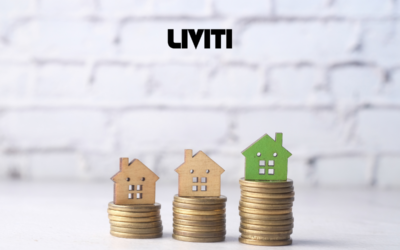Achieving financial independence is a goal many aspire to. Yet, the path to this goal often seems elusive and complex.
Off market property investment offers a unique avenue towards this objective. It’s a strategy that’s less known, yet potentially more rewarding.

Off market properties are those not publicly advertised for sale. They’re often referred to as ‘hidden gems’ in the real estate world. These properties can provide investors with exclusive opportunities, often at more competitive prices.
This comprehensive guide aims to demystify off market property investment. It will provide you with the knowledge and strategies needed to leverage this investment avenue effectively.
We’ll delve into the mechanics of off-market deals, the financial implications, and the potential for generating passive income.
By 2025, financial independence through off-market property investment can be more than just a dream. With the right information and strategies, it can be your reality.
Welcome to your journey towards financial freedom. Let’s begin.
Understanding Off-Market Property Investment

Off-market property investment refers to the acquisition of properties not publicly listed for sale. These properties are often sold privately, through direct negotiations between the buyer and seller.
This form of investment is different from traditional property investment. It bypasses the usual channels of real estate agents and public listings.
Off-market properties can include residential homes, commercial buildings, and even vacant land. They can be found through various sources, such as personal networks, direct mail campaigns, or real estate wholesalers.
Here are some key characteristics of off-market properties:
- Not publicly advertised for sale
- Often sold through private negotiations
- Can include various types of properties
- Found through personal networks or direct outreach
Advantages of Off-Market Deals

Off-market property deals offer several advantages over traditional property investments.
Firstly, they provide a level of exclusivity. As these properties are not publicly listed, competition is often less fierce. This can lead to more favourable negotiation terms and potentially lower purchase prices.
Secondly, off-market deals can offer a higher level of privacy. This can be particularly beneficial for high-profile buyers or sellers who prefer to keep their transactions confidential.
How Off-Market Properties Contribute to Financial Independence

Off-market properties can play a significant role in achieving financial independence.
These properties can often be acquired at below-market prices, providing immediate equity. This equity can be leveraged to finance further investments, accelerating wealth accumulation.
Moreover, off-market properties can provide a steady stream of rental income. This passive income can contribute significantly towards financial freedom, reducing reliance on traditional employment.
Building Your Off-Market Investment Strategy

Building a successful off-market investment strategy requires careful planning and execution.
Firstly, define your investment goals. Are you seeking short-term capital gains or long-term rental income? Your goals will shape your investment strategy and the types of properties you target.
Secondly, you need to understand your financial capacity. This includes your available capital, borrowing capacity, and risk tolerance.
Thirdly, conduct thorough investment property market research. This involves understanding property values, rental yields, and market trends in your target areas.
Lastly, you need to build a strong network of contacts. This can include real estate agents, property managers, and other investors.
Want to achieve financial independence by 2025?
Have a look into our exclusive off market property deals today and book a call with our property experts!
Identifying and Accessing Off-Market Opportunities
Identifying off-market opportunities can be challenging, as these properties are not publicly advertised.
One effective strategy is to build relationships with real estate agents. They often have access to off-market properties and can provide valuable insights into the local market.
Another strategy is to directly approach property owners. This can be done through direct mail campaigns, door-knocking, or cold calling.
Real estate investment groups and online platforms can also be valuable sources of off-market deals.
Networking: The Key to Hidden Gems
Networking is a crucial component of off-market property investment.
Building relationships with key industry players can provide access to exclusive deals. This includes real estate agents, property managers, and other investors.
Networking events, industry seminars, and online forums can be excellent platforms for building these relationships.
Negotiation Tactics for Off-Market Acquisitions
Negotiating off-market deals requires a different approach compared to traditional property transactions.
It’s important to understand the seller’s motivations. Are they seeking a quick sale, or are they more concerned with achieving a certain price?
You need to be prepared to move quickly. Off-market deals often require swift action to secure the property.
Financial Mechanics of Off-Market Investments
Understanding the financial mechanics of off-market investments is crucial for success.
You need to understand the concept of capital gains tax (CGT). This is the tax you pay on the profit you make when you sell a property.
Also, understand the difference between positive and negative gearing. Positive gearing occurs when your rental income exceeds your property expenses, while negative gearing occurs when your expenses exceed your rental income.
Finally, learn how to leverage equity and refinancing strategies as these are powerful tools for expanding your property portfolio.
Understanding Capital Gains Tax (CGT) and Its Implications
Capital gains tax (CGT) is a key consideration for property investors. When you sell a property for more than you paid for it, the profit is considered a capital gain. This gain is subject to CGT.
However, there are strategies to minimise your CGT liability, such as holding onto properties for at least 12 months to qualify for the CGT discount.
Find out how long you have to invest in off market properties to achieve financial freedom.
Positive Gearing vs. Negative Gearing
Understanding the difference between positive and negative gearing is crucial for property investors.
Positive gearing occurs when your rental income exceeds your property expenses. This can provide a steady stream of income, but it may also increase your tax liability.
On the other hand, negative gearing occurs when your property expenses exceed your rental income. This can provide tax benefits, but it also means you’re making a loss on your property.
Leveraging Equity and Refinancing Strategies

Leveraging equity and refinancing strategies can be powerful tools for property investors. By utilising leveraged equities, investors can expand their portfolios and increase their returns.
Equity is the difference between the value of your property and the amount you owe on your mortgage. You can leverage this equity to finance additional property purchases.
Refinancing involves replacing your existing loan with a new one, often with a lower interest rate or better terms. This can free up cash for further investments. By refinancing a home loan, you can optimise your mortgage and potentially access additional funds for expanding your property portfolio.
Achieving Passive Income Through Property Investment
Passive income is a key component of financial independence.
In the context of property investment, passive income refers to the rental income you earn without having to actively work for it.
Off-market property investment can be a powerful tool for generating passive income. By purchasing properties below market value, you can increase your rental yield and cash flow.
Additionally, off-market properties often have untapped potential for value-adding improvements, further boosting your rental income.
Generate Passive Income Through Real Estate

In real estate, passive income typically comes from rental income. When you purchase a property and rent it out, the rent you collect is considered passive income.
Off-market properties, in particular, can contribute significantly to your passive income. These properties are often undervalued, meaning you can purchase them at a lower cost and rent them out for a high return.
Case Studies: Successful Passive Income Strategies
Let’s look at some successful passive income strategies in the realm of off-market property investment.
One investor purchased a run-down, off-market property in a high-demand area. After renovating the property, they were able to significantly increase the rent, generating a substantial passive income.
Another investor used their equity to purchase multiple off-market properties. By renting out these properties, they were able to create a steady stream of passive income.
These case studies demonstrate the potential of off-market property investment for generating passive income and achieving financial independence.
Planning for Long-Term Success
Achieving financial independence through off-market property investment is not an overnight process.
It requires careful planning, strategic decision-making, and a long-term perspective.
By setting realistic financial goals, conducting thorough due diligence, and leveraging the expertise of professional advisors, you can navigate the path to financial freedom with confidence.
Setting Realistic Financial Goals
Setting realistic financial goals is a crucial first step in your property investment journey.
These goals should reflect your financial capacity, risk tolerance, and desired timeline for achieving financial independence.
Remember, property investment is a long-term game. Patience and consistency are key to success.
Importance of Due Diligence and Market Analysis
Due diligence and market analysis are essential in off-market property investment.
They help you identify undervalued properties, understand market trends, and make informed investment decisions.
Never underestimate the power of research. It can be the difference between a profitable investment and a costly mistake.
Role of Professional Advisors in Property Investment

Professional advisors can provide invaluable guidance in your property investment journey.
Real estate agents, financial advisors, and lawyers can offer expert advice, help you navigate complex transactions, and ensure you comply with all legal requirements.
Liviti’s expert service in property financing can further enhance your investment strategy with tailored financial solutions.
Don’t hesitate to seek professional help. It’s an investment in your financial future.
Final Thoughts: The Path to Financial Freedom
Achieving financial independence through off-market property investment is a journey filled with opportunities and challenges. It requires strategic planning, diligent research, and a commitment to continuous learning.
Remember, the path to financial freedom is not a race, but a marathon. Stay patient, stay focused, and keep your eyes on the prize.
With the right mindset and strategies, you can achieve your financial goals and enjoy the fruits of your investment efforts.
Here’s to your success in the world of off-market property investment!




